#psychology of BL
Text
Sand, compulsive caregiver
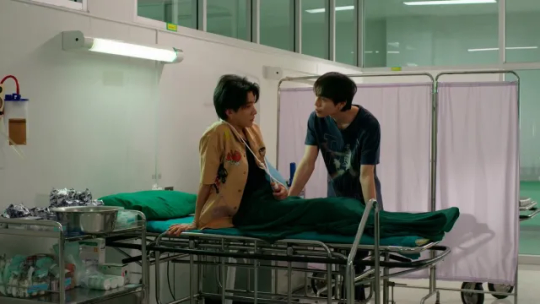
Something struck me when I was watching episode 5 of Only Friends, and as the show goes on, I can see more and more clearly how significant it was. Like a lot of folks I’ve been discussing the show with and whose posts about it I’ve been reading on here, I had already noticed that Sand was remarkably willing to take care of Ray even though he didn’t offer him much in return. From the first time they met, when he gave him a ride and a safe place to crash so he wouldn’t drive drunk even though he was incredibly belligerent to him, through episode 5 and beyond, Sand has always been ready to rescue Ray at a moment’s notice and asks very little in return. He’s down bad for Ray, certainly, but that doesn’t entirely account for it. And then Sand introduced Ray to his mother and everything clicked.
When Ray first meets Sand’s mom, she sits down with them and takes a big swig of her drink. “Don’t overdo it,” Sand tells her. “The doctor is going to scold you at your health checkup next week.” “You keep nagging at me, you know that?” she responds. “Who between us is the mother, exactly?” My psychology antennae went right up for that. Then Sand’s mom tells Ray, “This guy never stops working. Did you know he sends himself to school? On top of paying the debts I made, that is.” Yep. The ol’ antennae were going off big time by this point.
Later, Ray and Sand are at Sand’s place and Ray remarks, “Your mother is so cool. She seems so understanding.” Sand agrees. “She is. She raised me all by herself. We’re like friends, so I can talk to her about anything.”
That was all the confirmation I needed to feel assured in saying that Sand is a parentified child.
If you aren’t familiar with the term, parentification is a phenomenon in which a child is placed in a parental role or given parental responsibilities that are not age-appropriate. When parentification occurs on a large scale, it’s a form of neglect. Experts divide parentification into two types, which can appear separately or together: emotional parentification and instrumental parentification. Emotional parentification involves meeting the emotional needs of parents (who are often not emotionally available to the child in return), being responsible for the emotional needs of siblings in a parent-like manner, or having inappropriate responsibilities like defusing conflicts and keeping the peace. Instrumental parentification involves being required to help meet more concrete needs. Kids who experience instrumental parentification may have to take care of basic family needs like grocery shopping and cooking or may be given more responsibility for caring for their siblings than is appropriate for their stage of development.
A number of things we know about Sand and his mom show that Sand was parentified. The fact that he has been paying off his mother’s loans while putting himself through school is an example of parentification still occurring in the present. Sometimes a parent isn’t in the position to pay for their child’s education. But having him pay off her debts? At his age? That’s a case of role reversal, and a form of instrumental parentification. It’s unlikely that this is something that only came up when Sand was a young adult. I’d bet he’s been doing important tasks for his mother since he was quite young.
The fact that Sand says his mother is like a friend sounds good on paper. And in some ways it is a good thing. He says he can “talk to her about anything,” which implies he confides in her as well as the other way around. It’s not uncommon for emotionally parentified children to be expected to act as confidantes for their parents while not being able to turn to their parents for the same kind of support in return. (This is a form of parentification I experienced myself.) So Sand is making out better than some parentified kids in that the support goes both ways. But the way he talks about his mother like an equal is still not a great sign, since it suggests that roles in this family-of-two are more permeable than they should be. Parent-child relationships aren’t supposed to be symmetrical, at least not until the child is a full-fledged adult. The child is supposed to be able to expect more emotional support from their parent than they provide in return, and they shouldn’t be asked to provide certain kinds of support at all. And again, this seems like a pattern that was set in place at a time when this expectation was even less age-appropriate than it is at the time of the story.
In addition to the categories of emotional and instrumental parentification, there’s another typology that is based on the kinds of roles that a child may be asked to fill: parent-focused, sibling-focused, and spouse-focused parentification. The parent-focused type involves acting like a surrogate parent for their parent. Sibling-focused refers to acting in a parental role for your siblings. And spouse-focused parentification, sometimes called spousification, involves acting like a spouse for your parent. In my search for information on parentification, I found some cases in which spousification had a seductive, sexualized component in which the child is treated like a spouse in the most inappropriate of ways. But in other cases, it only referred to expecting a child to perform spouse-like functions like emotional support, without involving that seductive aspect.
Sand didn’t have siblings, thankfully. If he had, he probably would have been relied upon to provide a lot of care for them. He may have experienced parent-focused parentification. The way he treats his mother as if he’s her parent, as she herself points out, is an indication of parent-focused parentification. Given the fact that his relationship with his mother seems to be pretty reciprocal, I think there was an aspect that we could call spousification as well, but not in the seductive sense of that term. Rather, his mother seems to have regarded him–indeed, to still regard him in many ways–as a sort of familial life partner.
So what does this mean for Sand as a young adult starting to form relationships? Mostly, it points toward exactly the type of dynamics we’ve already seen come up between him and Ray. John Bowlby, one of the most influential early theorists on attachment, wrote that parentified children often grow up to be “compulsive caregivers.” Sound like anyone we know? Sand starts taking care of Ray almost as soon as he sets eyes on him, then keeps showing up for him again and again. Even after Ray humiliates him at the bar and calls him a whore in the parking lot in episode 6, he still follows him to monitor his safety and, when he gets in a car accident just as Sand feared he would, rescues him and takes him to the hospital. He even takes him home from the hospital and helps him bathe. Compulsive caregiving sounds about right.
There’s a new meta-analysis by Dariotis and colleagues that came out this summer that integrates findings on parentification across 95 studies. It has some interesting things to say about its aftereffects. The strongest finding across studies is that parentification is linked with depressive symptoms and internalizing problems (i.e., problems associated with turning difficult feelings inward). The studies they analyzed also pointed toward a number of factors that could be involved in how and why parentification leads to these outcomes. They include attachment style (parentification is often associated with a lack of secure attachment) and rejection sensitivity. In relationships, they write, “issues of trust and fear” often come up. They note that in one study, adolescents who had been parentified avoided emotional intimacy and had a hard time accepting support from others.
How well does this map onto Sand? Pretty darned well. We don’t know if Sand has depressive tendencies. When it comes to internalizing, most people have a tendency to either internalize more or externalize more, and given the way Sand cultivates a cool, seemingly unaffected demeanor in public and how much punishment he takes from Ray without fighting back, I think Sand tends to internalize more.
I wouldn’t be surprised if Sand had an insecure attachment style. He shows signs of anxious attachment in his pursuit of Ray, but also seems avoidant in some ways, as when he acts like he isn’t getting hung up on Ray when he clearly is. And although, in a similar way, he denies it most of the time, he’s very sensitive to rejection from Ray. Even though Ray usually fails to notice (because he doesn’t attend to Sand’s feelings well in the slightest), viewers get lots of signals that Sand is suffering when Ray pushes him away or minimizes their relationship.
Finally, it would track if Sand avoided emotional intimacy and had a hard time accepting support from others. If so, it would make perfect sense that he’d feel so drawn to Ray, someone who will make achieving emotional intimacy difficult (because he’s unlikely to return his feelings and be demonstrative about it) and who is unlikely to offer support that Sand would have a difficult time receiving. (In this regard, Sand is a classic pursuer–he acts like he wants intimacy but chooses a prospective partner who distances himself, allowing him to continue seeking intimacy without having to face the fears that would come up if he actually received the degree of closeness he claims to want.)
There is some good news for parentified children in Dariotis et al.’s meta-analysis. Positive effects of parentification haven’t been studied much, but when researchers looked for them, they found that it could be linked with greater resilience and positive coping skills. Sand does seem to be good at coping with adversity in some ways. He’s definitely someone you would want to have around in a crisis. He was remarkably level-headed after Ray’s accident. When goaded by Boston, he didn’t respond in an ill-advised combative way, and when Ray impulsively went after Boston, he tried to hold him back.
Sand clearly faced a lot of difficulties to get to the point he has reached at the time of the story. The fact that he has had to put himself through college and pay off his mother’s debts is far from ideal, but the fact that he was able to do this is truly remarkable. One factor linked to positive outcomes for parentified children is praise and validation from parents for their efforts. Sand’s mother seems to recognize all that he has done for her. She praises him when talking to Ray and since this doesn’t seem remarkable to Sand, I’m guessing she does so regularly. This bodes well for Sand’s ability to bounce back from parentification in adulthood.
If Sand can just get past, or at least mitigate, his compulsive caregiving and learn to assert himself–and frankly, kick the habit of falling for guys like Ray–he could look forward to a pretty healthy future. Much more so, certainly, than most of the central Only Friends characters. It depends on whether he’s ready to learn from the events of the show. Time will tell if he manages to do this in the course of the series; if not, we’ll have to hope he does so later on.
A note about cultural context:
Parentification is a Western concept originated by Americans and Europeans and as Dariotis and colleagues point out, more research is needed to understand whether and how it applies to people in other cultural contexts. In the meantime, the construct has been used in studies around the world to (seemingly) good effect.
Cultural factors will definitely impact how this construct takes shape. For example, in cultures that are more collectivist and/or that place a lot of value on filial piety, responsibilities that would constitute parentification in the U.S. or Europe could be commonplace and, as a result, more benign. One risk factor for negative outcomes that Dariotis et al. mention is if the child has a strong sense of having been treated unfairly. This factor is necessarily culture-bound because children’s sense of the fairness of their roles and responsibilities will undoubtedly come largely from comparing themselves to their peers. If a certain role is commonplace in their culture, this sense of unfairness is unlikely to come up and there’ll be a lower risk of negative outcomes.
For the record, I do believe that parentification does cross cultural lines as a phenomenon, despite the different forms it’s bound to take. And I believe that if a definition of parentification was created that was tailored for a Thai cultural context, it would apply to Sand’s situation with his mother.
#only friends#only friends the series#only friends sand#sand x ray#psychology of bl#parentification#parentified child#compulsive caregiving
230 notes
·
View notes
Text
“we sent yuan away so his feelings could subside” you sent him to gay rizz bootcamp is what you did
#watching this as it airs week to week is torture but it also means more free time to be generate shitposts and be unwell#i like to think that the new york gays welcomed him with open arms#'oh he learned about the 21-day habit theory at college' that man majored in IT or game design.#if he studied psychology he would know that theory is a busted myth#the queer club on the other hand was just throwing ideas at him left and right#mutuals feel free to ignore this one#unknown 2024#unknown the series#taiwanese bl#CJ's edits
595 notes
·
View notes
Text

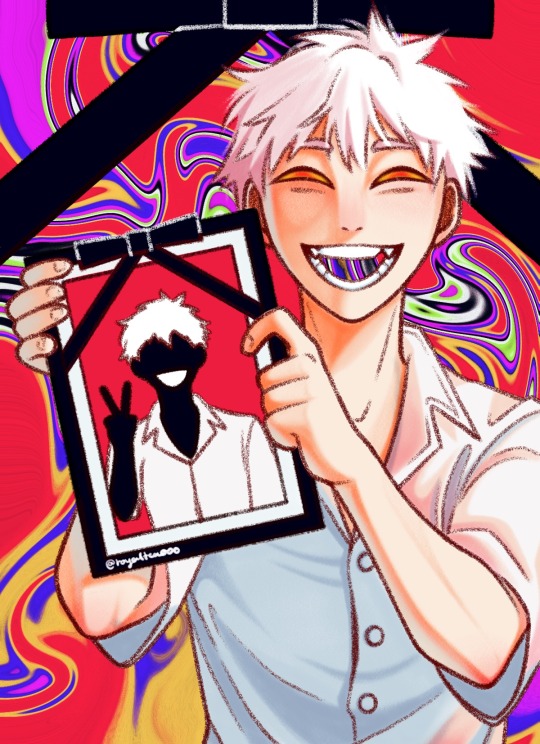
Do not stand by my grave and weep. I am not there.
#the summer hikaru died#hikaru ga shinda natsu#the summer hikaru died fanart#digital art#my art#artists on tumblr#procreate#digital illustration#I’m sick of flowery bl stories with shy hand holding and soft kisses#where’s the cannibalism and psychological horror??
865 notes
·
View notes
Text
y'know what? I like toxic Tyzula might write some sort of killing stalking AU with them.
#atla azula#atla ty lee#tyzula#killing stalking#ks is such a good psychological thriller fuck#it's not romance and I blame “dark romance” and basically every popular BL#someone draw Azula as Oh Sangwoo PLEASE#in that red suit of his she'd look great
23 notes
·
View notes
Text

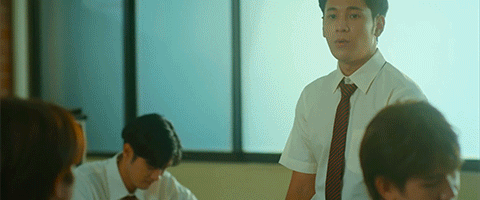
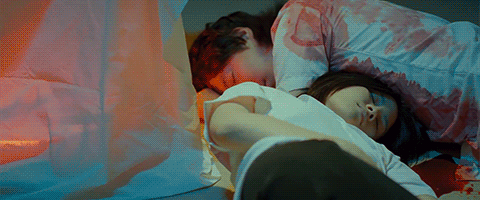
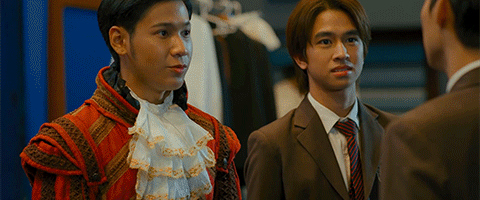




Shadow | S01E10
Thai Drama - 2023, 14 episodes
Episodes | Gaga | Viki | YouTube | iQIYI | WeTV | Tencent | Catalogue
#Drama: Shadow#LGBTQ+#Mystery#Horror#Ghost-seeing Male Lead#Supernatural#Psychological#งา/ล่า/ตาย#Shadow#Singto Prachaya#Fluke Natouch#Utt Uttsada#Fiat Patchata#Poon Mitpakdee#Thai BL#BL GIFS#TDrama#Kiss Episode
40 notes
·
View notes
Text
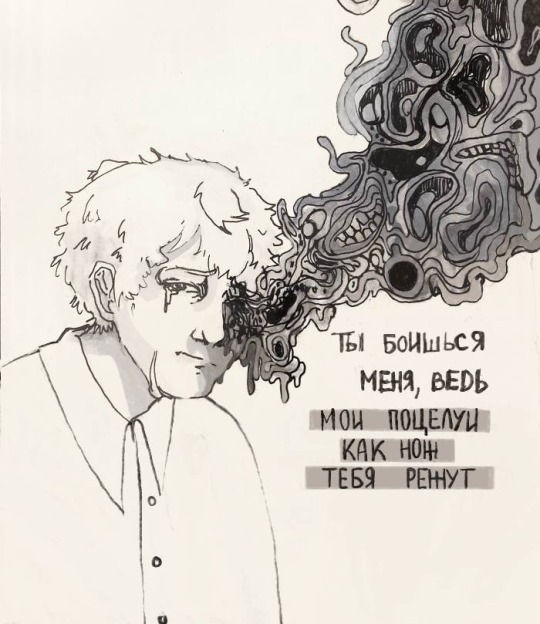

NEW HYPERFIXATION
#the summer hikaru died#art#fanart#hikaru ga shinda natsu#tshd manga#manga#gay#hikaru indou#fake hikaru#nonuki-sama#the summer hikaru died fanart#bl manga#horror manga#psychological manga
23 notes
·
View notes
Photo
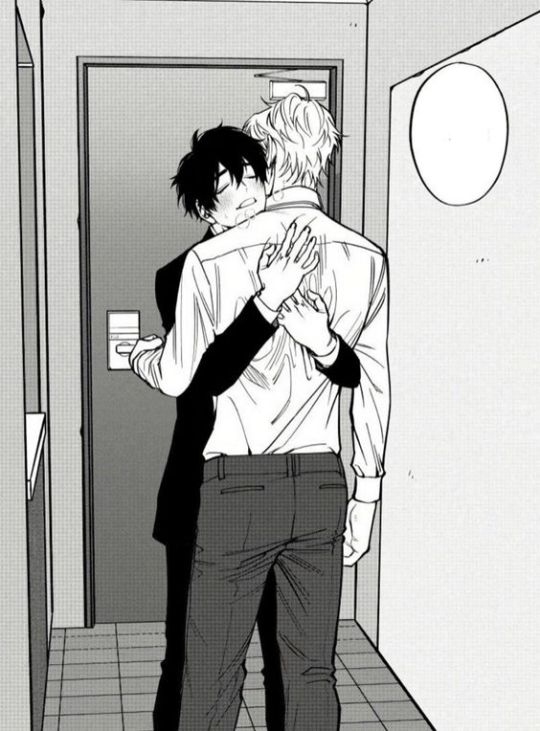
Shitto wa ai wo Kumoraseru
#shitto wa ai wo kumoraseru#daily manga#shounen manga#yaoi manga#bl manga cap#drama manga#psychological manga#romance manga#manga caps daily#manga caps
69 notes
·
View notes
Text
Recommendation BL Manhwa
This is not donghua but a manhwa I happen to find. This manhwa still needs to be finished, and there is still much to be revealed. However, I felt compelled to write a review because I adore it.
The title is “Shining Summer”. So far, I enjoy this manhwa. I am not sure if the original tags said "psychological" or "body swap," but I prefer to think of it as psychological. There are numerous theories about this manhwa, but none of them have been proven.
Title: Shining Summer
Genre: Shounen ai, Drama, Slice of Life, Psychological (?)
Tags: Bodyswap (?), Manipulative Seme, Childhood Crush, Personality Change, High School, Accident/s
Current Chapters: 66
Rating: 10/10 (This is just my thing. Don’t mind the manipulative seme. You’d be his bitch. )
The story started when the MC and ML were 10 years old. They were involved in a bus accident on their way to the dojo where they had enrolled. Because the ML shielded MC, he only sustained minor injuries. Because of the accident, ML seemed to become a different person. He was saying that he does not know this boy who goes by the name Jihoon. He claims that Jihoon is not his name, that this is not his body, and that those are not his parents. MC was distraught and came out of the hospital room, crying. Is he telling the truth, or is it a truth he claimed by himself because of a head injury? Maybe it is more complicated than that...
You understand what I mean by "psychological" and "body swap." ML believed he swapped bodies with the original Jihoon, so when he grew up and reconnected with MC, they went looking for his original body.
I like the pacing of this story. The pacing is perfect for a story of this genre. Some people are upset about it, but I do not think there is anything wrong with the pacing taking so long to develop. This book requires a good build-up because there are many mysteries lurking. Not only to build up the plot but also to build up and flesh out their characters. The writer is doing great. This book keeps me going because I am curious about what is going to happen next.
Characters are also well-developed. They are not flat. Even the minor characters are well-developed. I particularly liked how the author shaped the ML into who he is. He is not entirely a good person; despite the book's many cute moments, he is not designed to be fluffy. That is fine because his character is tailor-made for him, given what he is been through. I just hope the best for him because he’s been through so much. Imagine if you were in his shoes. Most people would lose their minds.
I just hope the plot does not veer off course. And, if it does, I hope it swerves like a race car. I have high expectations for this manhwa. I wanted to savor it while also learning more about it and reading more of it.
#bl manhwa#bl manhua#bl manga#shounen ai#yaoi#psychological bl#bj alex#dangerous convenience store#pearl boy#painter of the night#cherry blossom after winter#anti pt#kiss me liar#sign manhwa#how to snag an alpha#unscented trace#love tractor#love is an illusion#even if you don't love me#full volume#under the green light#the pizza delivery guy and the golden palace#payback#limited run#jinx#love jinx#semantic error#dear door#the unquenchable mr.kim#smyrna and capri
32 notes
·
View notes
Text

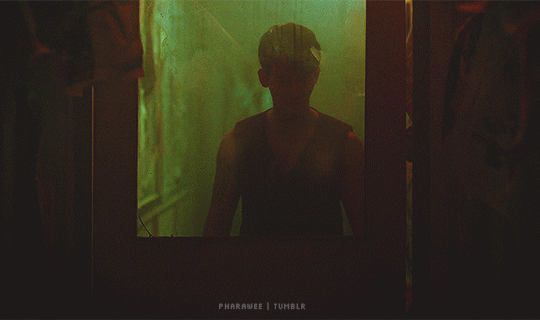
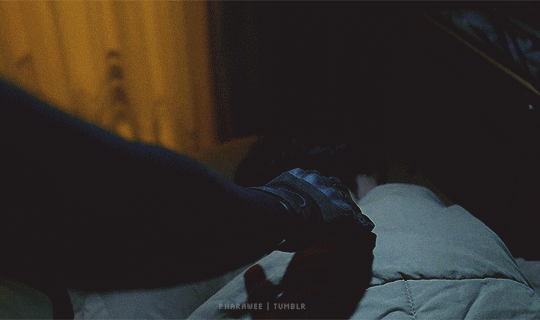


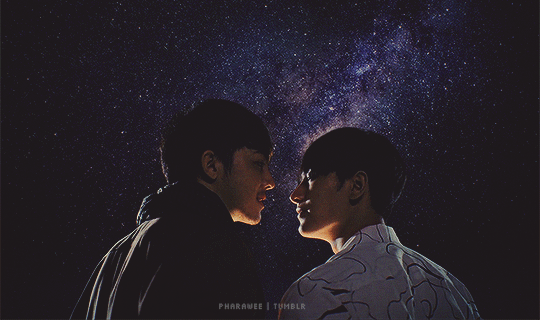
"I like stargazing, but you have to go to the mountains for it. There are no stars in this city. Have you ever been stargazing in Thailand?"
—CHAINS OF HEART, Episode 1
#chains of heart#chains of heart the series#haii sarunsathorn#boom raweewit#tanawat sukfuengfoo#chainsofheartedit#thai bl#thai drama#thaidrama#bl series#bl drama#my edits.#this is the psychological action thriller bl i deserve#even if it turns out that the mysterious stranger (tm) is din after plastic surgery or sth#also#one more for the cowherd & weaver girl allegory counter#ken wins this because he got it tattooed#and i like how he toughened up after what happened to him#still pls ken bestie seek therapy
55 notes
·
View notes
Text
In case anyone in inclined to help, or likes a treasure hunt, I'm looking for where this shirt was worn before: "Today is...totally not my day"
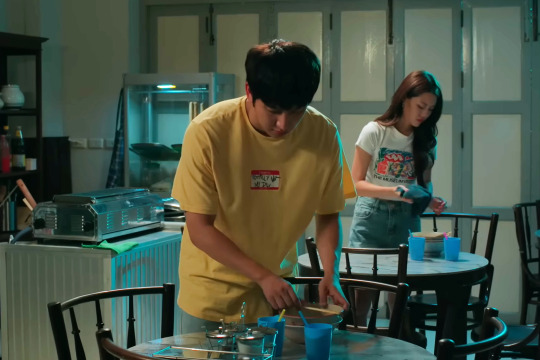
And just as an aside...Talay/Sea's shirt below looks like it could have been (or could be) something that Top would wear... I don't think he has yet, but I'm leaving it here in case he does...(or Boeing for that matter). Maybe it's just because Force and Sea have shared three different shirts now (here and here)...

#only friends#only friends the series#ofts#the thai communal wardrobe#thai bl#you're all out there writing indepth meta about the psychological motivations of the characters#and I'm just here like 'oooo I recognise that shirt!!' 😂#it's my way of processing I guess
19 notes
·
View notes
Text
Utsukushii Kare master post
With Utsukushii Kare: Eternal becoming available on streaming in Japan and rumors of international streaming distribution on the horizon, I thought this might be a good time to do a roundup post of all of my meta writing on the series so far. There's quite a bit of it. Between the complexity of the psychological themes in this series and my capacity for hyperfocus, I ended up with a lot to say.
In case it doesn't go without saying, this post is subject to change as I continue to post on this topic.
The psychological paradoxes of Utsukushii Kare
This is a series of posts (the current plan is to write three installments) about what it says on the tin: paradoxical psychological dynamics in Utsukushii Kare. These are things about the characters that may seem contradictory at first but can be accounted for by digging deeper into some psychological concepts. These posts are focused on the series (both seasons) but will draw from the movie and from the novel and related stories when they illustrate points about the series.
Part 1: Covert grandiosity and finding status through idealization - A pretty deep dive into 1) the subtle ways Hira shows that while his self-image can be highly negative in some ways, in other respects he feels superior to others and 2) how by elevating Kiyoi’s status and humbling himself in comparison, Hira attains a different kind of status.
An addendum of sorts to part 1: Hira's parents and his self-defeating tendencies - Some guesswork about how Hira's parents could have contributed to his self-defeating personality, with some further discussion of specific self-defeating strategies he uses in his relationship with Kiyoi and elsewhere.
Utsukushii Kare through the lens of pursuer-distancer dynamics and related psychological concepts:
The pursuer-distancer dyad & how it applies to the world of BL - a primer on this psychological concept and how it applies to BL generally, with a brief reference to how this concept applies to Utsukare (also touches on Semantic Error and talks in detail about an example from To My Star 2). This one isn't super focused on Utsukushii Kare but is pretty de rigeur for understanding my UK posts on this topic.
Paradoxical roles; or, I think I finally figured out the pursuer-distancer dynamic in Utsukushii Kare - This post comes after some of the posts listed below but I recommend reading it first as this is really where (I think) I cracked the code on this aspect of the story.
Pursuer-distancer roles & attachment style in Utsukushii Kare, Part 1: Hira - In-depth discussion of Hira's role in the pursuer-distancer dyad, his attachment style, and his personality
Pursuer-distancer roles and attachment style in Utsukushii Kare Part 2: Kiyoi - In-depth discussion of Kiyoi's role in the pursuer-distancer dyad, his attachment style, and his personality
Re-evaluating pursuing & distancing in Utsukushii Kare season 1 - super detailed post working out my thoughts about pursuing and distancing in season 1
On the way Sakai Mai (the series' director) uses seme left, uke right framing and its significance in BL and other Japanese media:
Using an example from the s2e1 with the girl who hits on Hira at a party (via a reblog of a gifset from @nanons)
On the way Sakai flips Hira's and Kiyoi's position in the frame in two versions of the same scene and what it tells us about its significance
How the persistent/cute trope plays out in Utsukushii Kare season 2, plus related overanalyses of the big season 2 finale kiss:
The persistent and the cute (how "persistent" and "cute" are code words with specific meanings in BL/yaoi/other drama and manga genres/Japanese culture more broadly)
Analyzing the season 2 finale kiss in light of seme left/uke right framing and the persistent/cute trope (in a reblog of a gif post by @nanons)
Reblogging @bl-bracket to lobby for the season 2 finale kiss, with more overanalysis
Fragrance nerd discussion:
This bittersweet fragrance - on the significance of osmanthus/tea olive in Utsukushii Kare season 2, with additional information on the possible significance of the fragrance of osmanthus and perfumes that are either osmanthus soliflores or feature prominent osmanthus notes
Posts on specific season 2 episodes:
initial thoughts about S2e1
Additional (informal) thoughts on s2e1
S2e1 rundown
Hira's incongruous/misaligned affect at the end of s2e1
S2e2 rundown
on S2e2, including pursuer-distancer dynamics and seme left, uke right
Utsukushii Kare S2E4: “face me straight on” (mostly discussing relationship dynamics pointed out in topic-specific metas)
on Utsukushii Kare: Eternal:
Kiyoi and Anna: on Kiyoi’s friendship with Anna and its significance for his personal growth
#utsukushii kare#utsukushii kare meta#utsukushii kare analysis#utsukushii kare season 1#utsukushii kare season 2#utsukushii kare 2#utsukushii kare eternal#utsukushii kare: eternal#hira x kiyoi#japanese bl#jbl#my beautiful man#psychology of bl#pursuer distancer dynamic#attachment theory#attachment style
184 notes
·
View notes
Text
Charlie now literally makes my skin crawl every time he's on screen. I hope they manage to fix that for me. (Mainly because their sex scenes are hot and I want to be able to enjoy them.)
#he just popped up out of nowhere in babe's living room and started grabbing him#it's giving psychological horror film#talented mr ripley or some shit#pit babe#currently watching ep 5#gillianthecat liveblogs bl#pit babe the series
6 notes
·
View notes
Text
rip hermann hesse you would've loved the heart of thomas by moto hagio
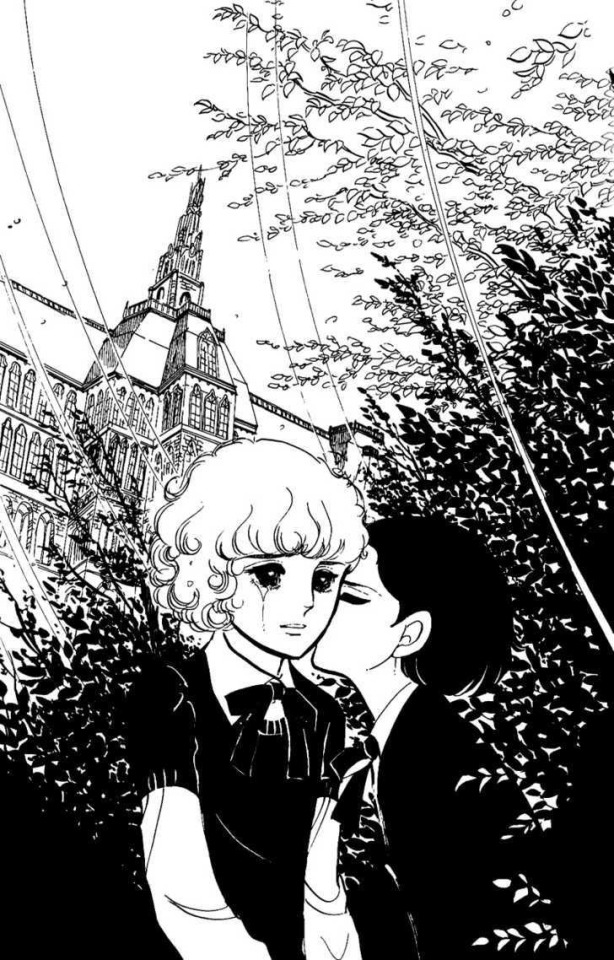
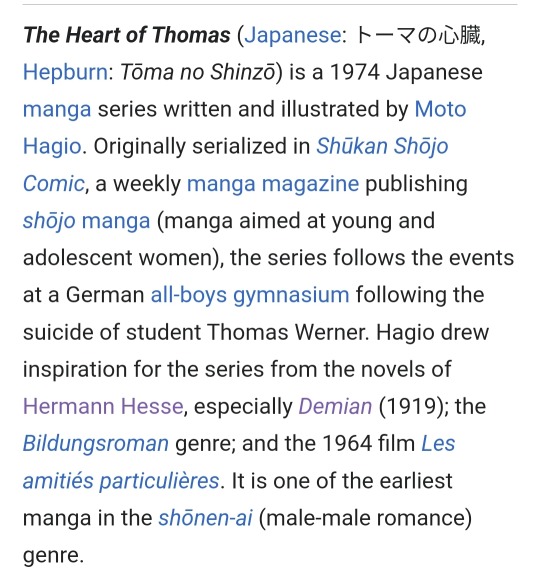
#not the purple wiki highlighted links to hesse and demian LOL#this was actually the origin story of my hesse pipeline#sorry all i've been doing today is hesseposting but that's because his works live in the same part of my brain as shoujo BL#and i need all of you to see my vision#i'm trying to yaoibait all of you into reading german spiritual philosophy and jungian psychology books#hesseposting
8 notes
·
View notes
Text

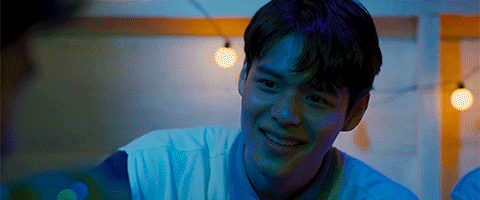
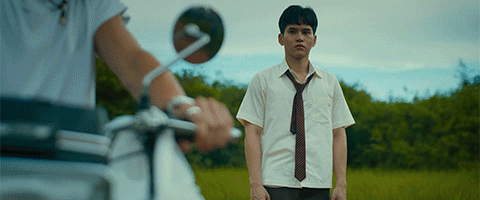
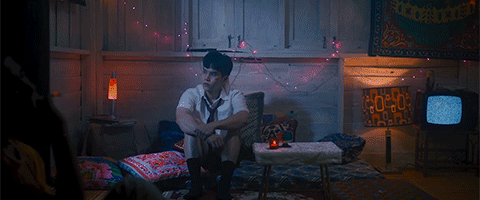




Shadow | S01E09
Thai Drama - 2023, 14 episodes
Episodes | Gaga | Viki | YouTube | iQIYI | WeTV | Tencent | Catalogue
#Drama: Shadow#Mystery#Horror#Ghost-seeing Male Lead#Supernatural#Psychological#งา/ล่า/ตาย#Shadow#Singto Prachaya#Fluke Natouch#Utt Uttsada#Fiat Patchata#Poon Mitpakdee#Thai BL#BL GIFS
30 notes
·
View notes
Text
Jinx: Tie: „I was this close to winning“. 🏆 ( second version)
#JooJaekyung #JINX #Jinxmanhwa The essay "Tie: I was this close to winning". 🏆 has been updated. #jinxchapter51 I hope you will like it. Like always, it also contains predictions. Reblog or like it as support. Thanks. It would be great, if you left comments. The essay is locked. Please use the third password, like in the past.
Please support the authors by reading the manhwas on the official websites. This is where you can read the manhwa: Jinx. But be aware that the Manhwa is a mature Yaoi, which means, it is about homosexuality with explicit scenes. Here is the link of the table of contents about Jinx. Here is the link where you can find the table of contents of analyzed manhwas. Here are the links, if you are…

View On WordPress
#Analyses#Baek Junmin#Chapter 1#Chapter 40#Chapter 41#Chapter 42#Chapter 46#Chapter 47#Chapter 48#Chapter 49#Chapter 5#Chapter 50#Chapter 51#Coach Jeong Yosep#Halmoni - Shin Okja#Heo Manwook#징크스#Jinx#Jinxmanhwa#Joo Jaekyung#Kim Dan#Manager Park Namwook#Manhwa#mature Yaoi - BL Manhwa#MFC Manager#Mr Choi Gilseok#Positive Psychology#Psychology#Seonho
4 notes
·
View notes
Photo
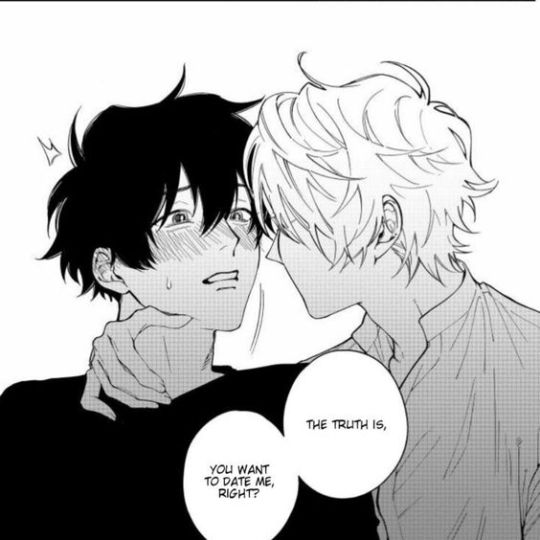
Shitto wa ai wo Kumoraseru
#shitto wa ai wo kumoraseru#manga caps#shounen manga#daily manga caps#yaoi manga#bl manga cap#manga#drama manga#psychological manga#romance manga
31 notes
·
View notes